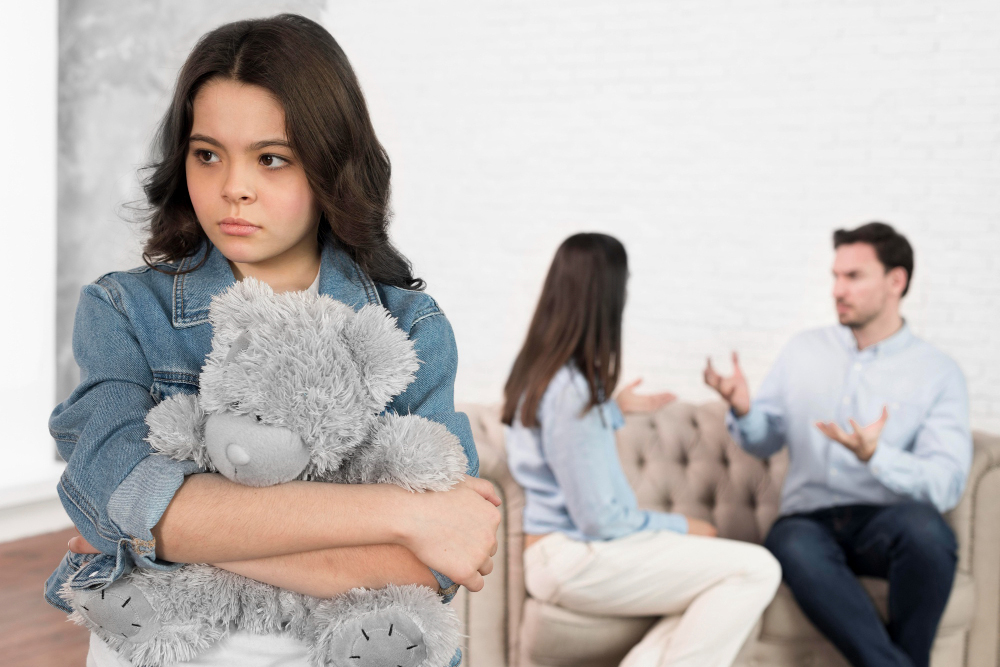
Relationships between parents and children play a foundational role in shaping who we are. They influence our self-esteem, behaviors, communication styles, and emotional well-being. However, not all parent-child relationships are positive. Negative experiences during childhood can leave lasting impacts that ripple into adulthood, affecting not only our mental health but also our ability to form healthy relationships.
If you've experienced challenges stemming from a difficult parent-child relationship, you're not alone. This post will explore the lasting effects of these dynamics, signs that your past may still be impacting your present, and how you can take proactive steps to heal. Whether you're seeking answers or guidance, support is closer than you think.
What Does a Negative Parent-Child Relationship Look Like?
Negative parent-child relationships can take many forms and stem from various factors. Here are some characteristics that often define problematic dynamics in families:
1. Lack of emotional support
Parents are a child’s first emotional mirror. When a parent fails to provide empathy, encouragement, or affection, it can result in a lack of emotional security. This emotional neglect can leave children feeling unsupported, unseen, or unworthy of love.
2. Excessive criticism or unrealistic expectations
Constantly being criticized or pressured to meet impossible standards can damage a child’s self-worth. Over time, they may internalize these experiences, believing they’ll never be “good enough.”
3. Physical or emotional abuse
Abuse leaves long-lasting scars, no matter if it’s physical, verbal, or emotional. Children in these situations often grow up with a heightened sense of fear, mistrust, and hyper-vigilance.
4. Over-control or neglect
Parents who are overly controlling may hinder a child’s ability to develop independence and self-confidence. On the other hand, neglectful parenting leaves gaps in a child’s ability to form a healthy sense of security.
5. Unresolved conflict or parental inconsistency
When parents frequently argue in front of children or struggle with their own emotional regulation, it creates an unpredictable environment. Children raised in such homes may grow into adults who have difficulty managing their emotions or trusting others.
The Long-Term Effects of Negative Parent-Child Relationships
Having experienced a problematic relationship with one or both parents doesn’t just fade away when we enter adulthood. Instead, it can manifest in subtle or significant ways within our lives.
1. Difficulty Forming and Maintaining Relationships
Adults who experienced lack of trust, constant criticism, or neglect may develop attachment issues. They might struggle with trusting partners fully, feel anxious about abandonment, or prefer to emotionally withdraw as a defense mechanism.
2. Low Self-Esteem and Self-Worth
Constant judgments or neglect during childhood can condition adults to believe they aren’t valuable. They may question their abilities or worth in both personal and professional settings.
3. Heightened Stress and Anxiety
Growing up in a tense environment can lead to chronic stress responses that persist into adulthood. This may take the form of general anxiety, overthinking, or even physical symptoms such as insomnia or fatigue.
4. Difficulty Managing Conflict
Adults who witnessed destructive conflict or poor communication between their parents may find themselves ill-equipped to handle disputes in their own lives. They might avoid confrontation altogether or become overly defensive in disagreements.
5. Risk of Mental Health Struggles
Research consistently shows that negative parent-child relationships are linked to mental health disorders such as depression, anxiety, and even complex post-traumatic stress disorder (C-PTSD).
6. Self-Sabotaging Behaviors
Adults affected by problematic parenting may blame themselves for their childhood struggles. This can lead to patterns of self-sabotage, such as procrastination, avoiding opportunities, or staying in unhealthy environments.
Signs That Your Past is Still Affecting You
Sometimes, the impact of a negative parent-child relationship isn’t immediately clear. Here are a few signs it may still be influencing your life today:
- Struggling with boundaries in personal relationships.
- Feeling overly responsible for others’ happiness.
- Experiencing intense fear of rejection or abandonment.
- Having a constant need for validation or approval.
- Difficulty expressing emotions in a healthy way.
- Replaying old childhood arguments in your mind.
Sound familiar? If so, it’s essential to address these feelings with compassion and to know there’s hope for change.
How Therapy Can Help You Heal
Healing from the effects of a negative parent-child relationship takes time, care, and intention—but it’s absolutely achievable. Therapy, in particular, provides a safe space to explore how your past has shaped your present behavior and equips you with tools to move forward.
Benefits of Therapy for Healing Parent-Child Relationship Issues
- Understanding Your Patterns
Therapists can help you identify repeated patterns of behavior that stem from your childhood. Shining a light on these can guide you toward healthier ways of coping.
- Processing Feelings of Pain or Resentment
If you’ve buried feelings of sadness, anger, or rejection from your childhood, therapy can create an outlet to validate and work through them.
- Building Healthier Relationships
Through therapy, you'll learn how to set boundaries, communicate effectively, and establish more trusting connections, whether with romantic partners, friends, or colleagues.
- Changing Negative Beliefs About Yourself
Therapists can help challenge and restructure the harmful self-beliefs formed in childhood, building your confidence and sense of self-worth.
Take the First Step Toward Healing
Negative parent-child relationships don’t have to define your future. While they may be an integral part of your story, they’re not the end of it. Therapy offers an opportunity to rewrite the narrative, helping you reclaim your sense of self and establish healthier, more fulfilling relationships.
If you’re seeking support, look no further. At Orlando Thrive Therapy, our experienced team understands the intricate impacts of family dynamics. We provide a compassionate space to explore your challenges, identify solutions, and help you grow.
Reach out to a trusted therapist in Orlando, FL today to start your healing journey. Contact us now for more information or to book an appointment.
